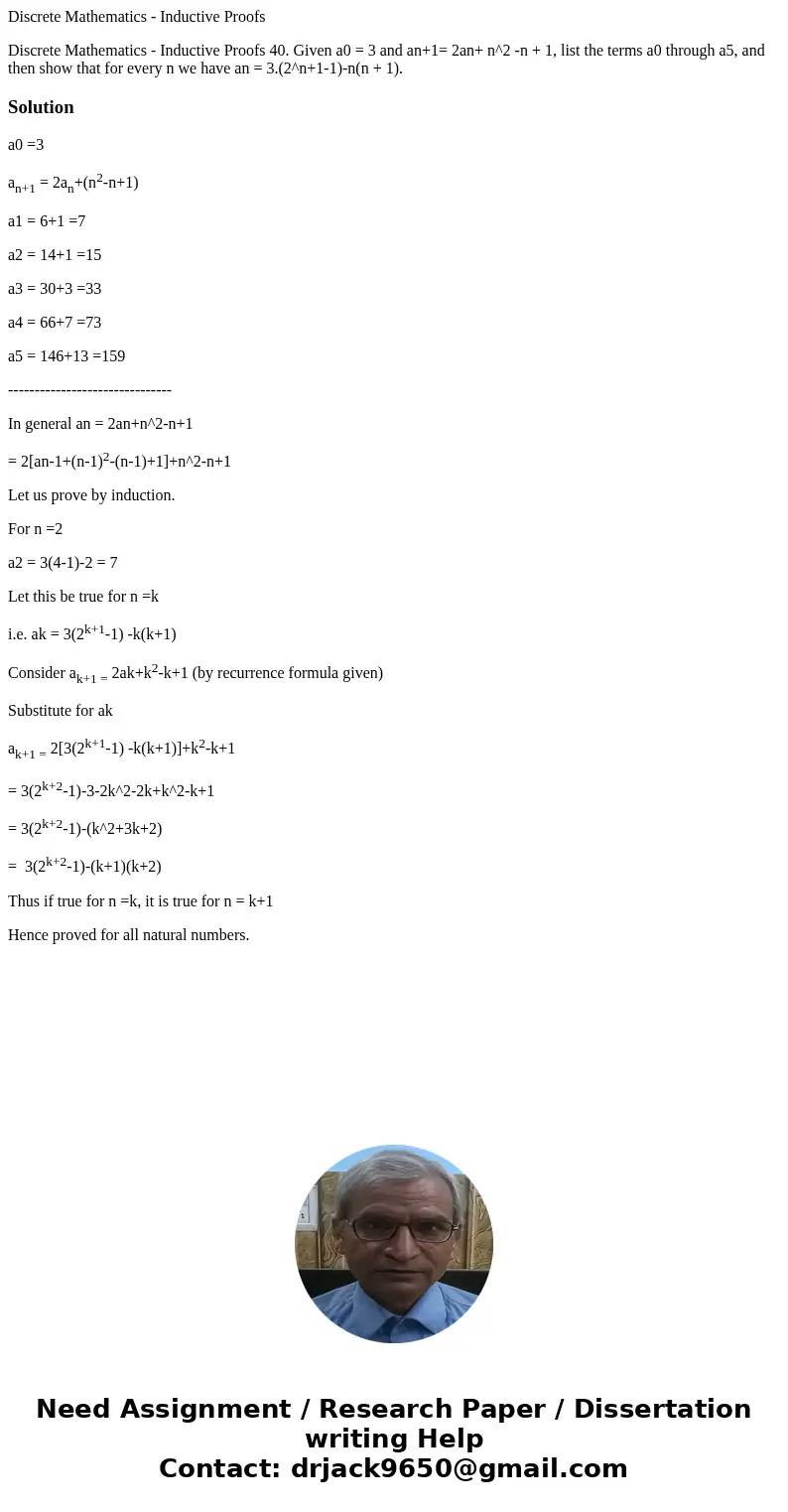Discrete Mathematics Inductive Proofs Discrete Mathematics
Discrete Mathematics - Inductive Proofs
Discrete Mathematics - Inductive Proofs 40. Given a0 = 3 and an+1= 2an+ n^2 -n + 1, list the terms a0 through a5, and then show that for every n we have an = 3.(2^n+1-1)-n(n + 1).Solution
a0 =3
an+1 = 2an+(n2-n+1)
a1 = 6+1 =7
a2 = 14+1 =15
a3 = 30+3 =33
a4 = 66+7 =73
a5 = 146+13 =159
-------------------------------
In general an = 2an+n^2-n+1
= 2[an-1+(n-1)2-(n-1)+1]+n^2-n+1
Let us prove by induction.
For n =2
a2 = 3(4-1)-2 = 7
Let this be true for n =k
i.e. ak = 3(2k+1-1) -k(k+1)
Consider ak+1 = 2ak+k2-k+1 (by recurrence formula given)
Substitute for ak
ak+1 = 2[3(2k+1-1) -k(k+1)]+k2-k+1
= 3(2k+2-1)-3-2k^2-2k+k^2-k+1
= 3(2k+2-1)-(k^2+3k+2)
= 3(2k+2-1)-(k+1)(k+2)
Thus if true for n =k, it is true for n = k+1
Hence proved for all natural numbers.

 Homework Sourse
Homework Sourse